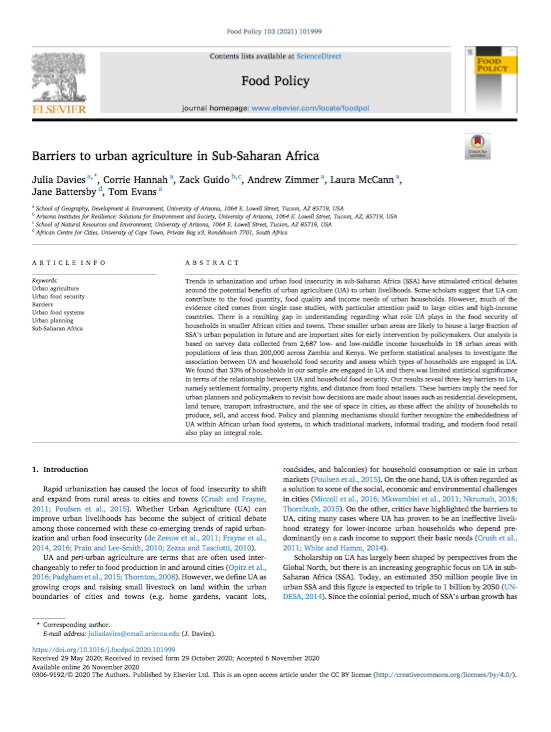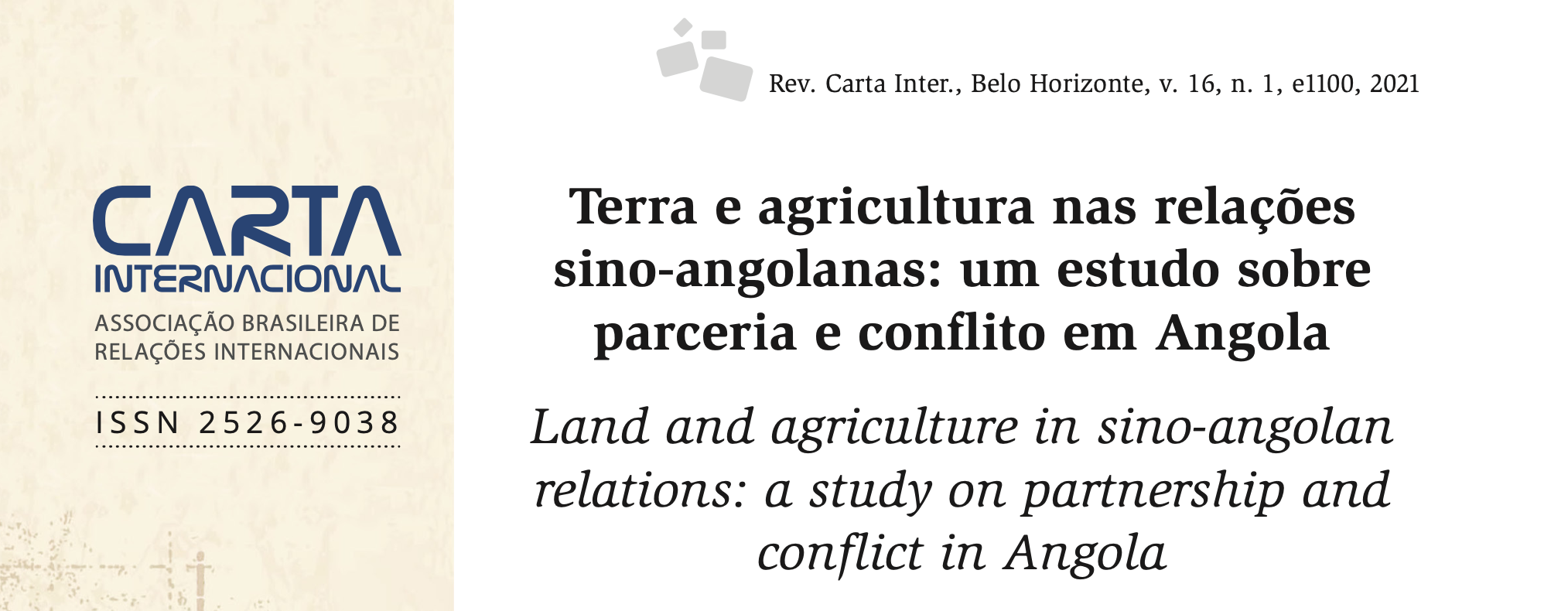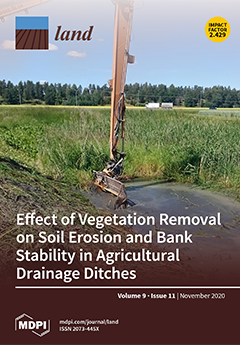Trends in urbanization and urban food insecurity in sub-Saharan Africa (SSA) have stimulated critical debates around the potential benefits of urban agriculture (UA) to urban livelihoods. Some scholars suggest that UA can contribute to the food quantity, food quality and income needs of…
Face aux enjeux liés à la gouvernance foncière, plusieurs initiatives de cartographie participative ont été menées, au Bénin et ailleurs en Afrique. Une initiative de ce type est d’autant plus indispensable au Bénin, sachant que les limites des villages n’ont pas encore de reconnaissance…
A busca por recursos naturais sobressai nas investidas interna- cionais de alguns países, sendo a China uma das melhores ilustrações. Motiva a política externa chinesa, assim orientada, o abastecimento principalmente de matérias primas energéticas e de produtos agrícolas. Para as áreas…
Understanding the dynamics of agricultural expansion, their drivers, and interactions is critical for biodiversity conservation, ecosystem-services provision, and the future sustainability of agricultural development in Sub-Saharan Africa (SSA). However, there is limited understanding of the…
Issues relating to land are specifically referred to in five of the United Nations’ (UN) 17 Sustainable Development Goals, and UN-Habitat’s Global Land Tools Network views access to land and tenure security as key to achieving sustainable, inclusive and efficient cities. The African continent is…
Land laws provide a legal basis for addressing a country’s land-related strategies and are the central land policy instruments through which governments realise land policy objectives. Considering their vital role, it is imperative that land laws be evaluated to ensure that policy objectives are…
Despite the ongoing land administration reforms being implemented across sub-Saharan Africa (SSA), including Ghana, as a viable pathway to achieve tenure security and greater efficiency in land administration, the subject of land dispute resolution has received relatively less attention. Whereas…
This study was undertaken to examine local perceptions of the impacts of small-scale tree plantations, notably of Acacia decurrens (J.C. Wendl.) Willd., in Ethiopia’s Upper Blue Nile Basin. A particular focus of our study was on the different dimensions of livelihood sustainability centering on…
Food security in Africa needs abundant, affordable and nutritious food for the growing population.
•Smallholder farmers lack sufficient land or economic incentives to invest in agriculture.
•The above issues create a ‘wicked problem’ – a conundrum for future food security.
…
The paper critically engages with sustainable development goal targets (SDG-2- Target 2.3; SDG-5) to examine how and why large-scale agricultural land acquisitions modify the social relations of women’s food access. The study draws from impacts of various plantation schemes in Cameroon and Ghana…
In sub-Saharan Africa, the urban majorities are financially excluded from the formal housing markets and reside in informal settlements. Limited knowledge on the development of informal settlements compromises the efficacy of urban planning and policies targeting such areas. This study presents…
Urban parks provide various environmental, socio-cultural and economic benefits, also called ecosystem services, as well as challenges. Urban park planning and management needs to consider the perception and attitude of people towards the benefits, challenges and quality of the parks. However,…







